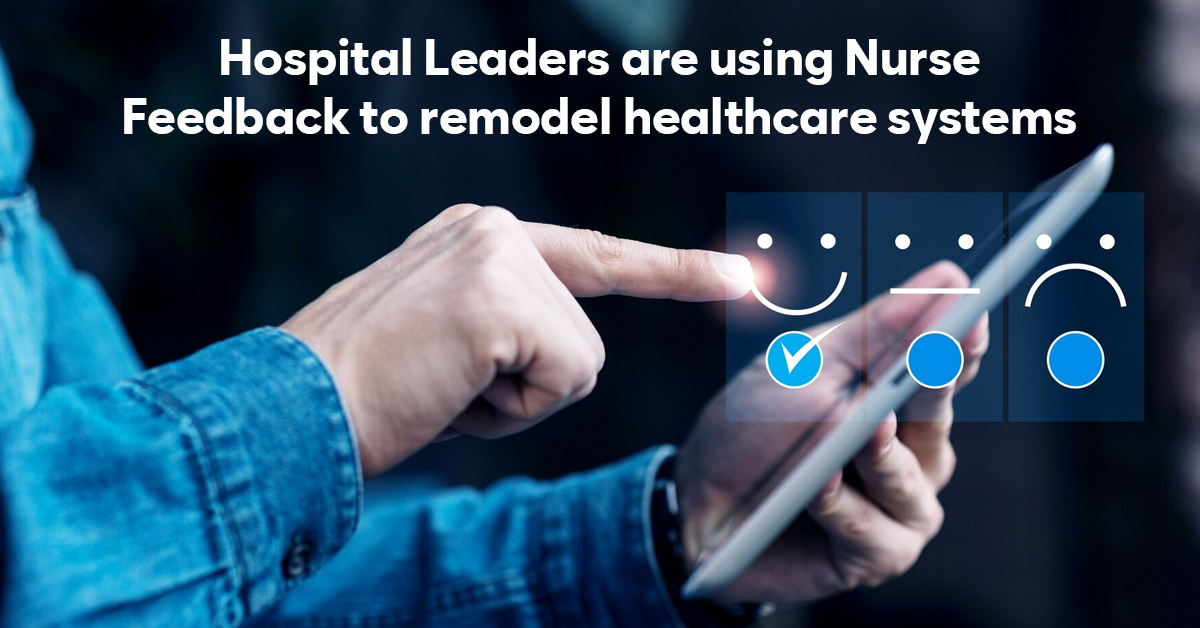In the fast-paced world of healthcare, the demands are ever-increasing and challenges are omnipresent. The voice of nurses often echoes the true heartbeat of a hospital. In a recent study conducted by MIT Sloan Management Review, staffing agencies outshine hospitals in one crucial aspect. This is responsiveness to nurse feedback.
As we delve into the intricate web of healthcare systems, the key to improving patient care and staff satisfaction lies in the meticulous consideration of nurse feedback.
The analysis of 150,000 Glassdoor reviews by U.S. nurses, spanning the period from the onset of COVID-19 to June 2023, provides insightful revelations. Among the 200 largest healthcare employers, staffing agencies take the lead in nurse satisfaction. The report highlights the swiftness with which staffing agencies address nurses’ concerns. Thus, setting them apart from hospitals, where the response is not as successful.
Nurse Feedback Rate High in Staffing Agencies
Nurses praised staffing agencies for their commitment to open communication and efficient issue resolution. This is in contrast with hospitals, where slow response times and, at times, no response at all, are common complaints. This underscores a critical need for change in the way healthcare organizations approach feedback. The report emphasizes the value nurses place on having multiple channels of communication. Including the ones with their supervisors, signalling a demand for more direct and responsive avenues for dialogue.
While hospitals may excel in certain areas such as learning and development, benefits, and opportunities for promotion, the focus needs to shift towards addressing the core concerns of nurses. The findings highlight the urgency for healthcare organizations, particularly hospitals, to establish effective mechanisms for nurses. By doing this, they can routinely share their concerns and ensure that feedback translates into tangible change.
CNO’s give their take on the current situation of nurse feedback
A recent discussion with three chief nursing officers (CNOs) shed light on diverse strategies employed by healthcare leaders to stay attuned to the challenges faced by their nursing teams, By understanding these, you can implement meaningful changes based on feedback.
Dr. Tommye Austin, Senior Vice President of Patient Care Systems and Chief Nursing Executive at BJC HealthCare, emphasizes the importance of intentional communication. BJC HealthCare uses various approaches, including surveys and monthly town hall-style meetings for nursing teams across its facilities. These meetings see attendance of over a thousand nurses. Nurse input plays a critical role in selecting the topics. Thus, ensuring that the discussion addresses pertinent issues, from workplace violence to professional development.
Similarly, Dr. Karen Doyle, Senior Vice President of Patient Care Services and CNO at the University of Maryland Medical Center, emphasizes the value of personal connection. Monthly town halls and intimate gatherings like “Breakfast with the CNO” facilitate one-on-one engagement. Also, they provide a platform for nurses to voice their concerns. Dr. Betty Jo Rocchio from Mercy stresses the importance of being on the ground. As, it is important to understand the challenges first-hand and connecting with nurses at the bedside.
However, it’s not just about collecting feedback; it’s about transparently acting upon it. BJC HealthCare’s focus on workplace violence in response to nurse input and Mercy’s implementation of a gig-model app for flexible shifts are examples of tangible actions resulting from nurse feedback. At the University of Maryland Medical Center, hiring a wellness manager in response to staff burnout concerns demonstrates a commitment to proactively address issues raised by nurses.
The success of these initiatives hinges on the willingness of leaders to address uncomfortable topics and follow through on their promises. Dr. Austin from BJC HealthCare stressed the importance of acting and keeping one’s word. Dr. Rocchio echoed this sentiment, emphasizing a culture of transparency. This is where all feedback, no matter how uncomfortable, is seen as valuable and worth acting upon.
Conclusion
Hospital leaders are recognizing the pivotal role nurse feedback plays in reshaping healthcare systems. By fostering open communication, implementing various channels for feedback, and taking decisive action in response, hospitals can bridge the gap between staff expectations and organizational realities. In the ever-evolving landscape of healthcare, the power to remodel systems for the better lies in our hands. Therefore, we need leaders who listen, understand, and act upon the voices of their nurses.





